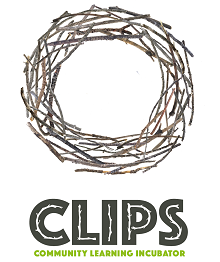Rituals, Celebration, Culture
Common rituals can become important aspects of community building.
The word “ritual” is used here in the sense of group-specific ways of doing certain things, not only referring to cultural ceremonies. Rituals can shape group culture, the shared worldview, and thus strengthen a sense of belonging. Some rituals are integrated into everyday life, while others are reserved for special occasions.
Simple everyday rituals serve to support a mindful atmosphere, per example:
- Introducing a short moment of silence when starting a discussion or when it becomes too hasty or overly emotional (using mindfulness bell)
- Check-in and short personal sharing at the beginning of a meeting, check-out at the end of a meeting
- “Thanksgiving” rounds, in which people express gratitude to others
- Starting shared meals by acknowledging how valuable the food is to the group (this can be done simply by cheering to the cooks just before the meal, or by an intricate and even spiritual ritual or prayer)
- Singing, playing music and dancing (whether done purposefully at some given time of the day, or simply while waiting for all the people to gather for the meeting)
- Having short games as energizers during longer events.
Such simple everyday rituals foster mutual understanding and appreciative group-culture.
Among special occasions anniversaries are probably the most universal. Making a list of all anniversaries (important dates of the community, birthdays, marriage anniversaries, dates of members’ joining etc.) makes it easier to take sincere and focused effort to celebrate them. Very few things can make people feel as good about their fellows in the group as a birthday cake, perhaps a few presents and some special attention.
Celebrations are fundamental to every society, and even in the secular world certain days are considered sacred. Humans have a deep, even ancestral need to mark special occasions and celebrate. If community life is characterized by all work and no play, it will risk only to “make Jack a dull boy” and potentially have a bad effect on the entire group in the long run.
Different groups have different styles of celebration. Spiritually oriented groups favour meditative, silent ways, immersing in prayer or some spiritual practice. Secular groups prefer party, music, laughter and festive food. Combination of the two styles is also an option, of course.
Celebration does not necessarily require a lot of time. Sometimes taking two minutes to congratulate the colleague who had just shared his story of success can mean a lot. Attention to such little celebrations makes the group conscious of the cohesive power of big celebrations, and people will gladly take long time to prepare the project’s 20th anniversary celebration.
People in secular societies have become estranged from rituals and especially from celebrations. No wonder community spirit is dwindling in the majority of rich countries. Successful group projects therefore pay extra attention to celebrations. In Dragon Dreaming, it is even said that a quarter of project’s time and resources should be dedicated to celebration.

